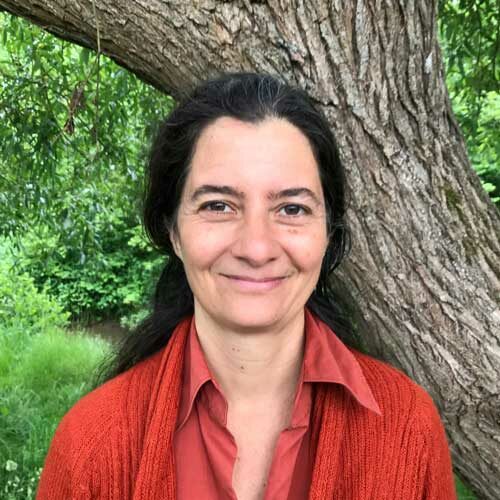Dharma practice encourages us to transform our thoughts, words and actions. The primary mechanism for how this is accomplished is vague. What often goes unnoticed is that the use of the term mind has undergone a radical psychologization from the time of the Buddha into present day. During this session we will explore the many nuances of the pali term citta and how it can be utilized as a voice for personal and global transformation.
With Dave Smith recorded on July 31, 2022.
Found our teachings useful? Help us continue our work and support your teachers with a donation. Here’s how.
Discussion
One thought on “Citta and Right Speech: Cultivating the Voice of Kindness and Wisdom”
Leave a Reply Cancel reply
You must be logged in to post a comment.
Discover more from the Dharma Library
-

Glimpses of Interbeing: An Introduction to Insight Dialogue
Recorded :
March 17, 2024 Based in the Buddhist tradition, Insight Dialogue harnesses the power of relationship to amplify, refine, and accelerate the development of mindfulness. Consisting of 6 meditative guidelines practiced in dyads or more, the practice supports the wisdom of dharma to enter the heart and mind in an embodied way that is immediately applicable in daily life. Join…
-

Daily Meditation Recordings, with Leela Sarti – Week of 24 March, 2025
We’re delighted to have Leela Sarti guiding our Daily Meditation sessions this week. May these sessions support and deepen your practice.
This week’s theme is: Entering the Timeless
We often live caught in a charged and time bound perspective: I need to use my time! I don’t have enough time! time is running out! But as human beings we can also re-discover that time is malleable and through practice, the act of sacred awareness, relax into a sense of no time, deep time and all time.
Our Dharma Library thrives through collective generosity. Your donation helps sustain this offering for our entire community.
-

Liberation Now: From the Progressive Path to Direct Experience
Recorded :
December 1, 2019 In a progressive path approach to practice, we sometimes fall for the idea that liberation is in the future. We are conditioned to believe that we must end thinking, master practices, meditate for years, and purify our minds. Without realizing it, our beliefs can maintain the conditioning that stands in the way of our direct…
-

Daily Meditation Recordings, with Martin Aylward – Week of June 29
We’re fortunate that Martin Aylward has generously offered to lead our daily meditation sessions for Europe and the UK this week. To find out more about Martin, and view his other recordings on the platform, click here. Monday, June 29 Wednesday, July 1 Friday, July 3 Tuesday, June 30 Thursday, July 2
-

The Roots of Discouragement
Recorded :
September 12, 2021 Progress in meditation may be slower than we anticipate. Discouragement develops when the comparing mind holds unrealistic expectations, demands perfection, and craves for measurable progress, predictable results, or signposts of success. This talk explores the obstacle of discouragement and its roots in conceit and the comparing mind. To prevent discouragement, we develop skillful ways to…
-

Opening to the Joy of Interconnection
Recorded :
July 4, 2021 A deeply conditioned habit of the human mind is to experience ourselves as independent and distinct from others and the world that we share. At the heart of Dharma teachings is the invitation to question, inquire into and transform this conditioning of separation, opening us to the joy and possibility of mutuality and interconnectedness. During…
-

The colouring of awareness.
Recorded :
July 12, 2015 Meditation practice trains our capacity to be aware, in real time, of what is happening. But what is colouring your awareness? We can pay very clear and steady attention in a way that is also demanding, defensive or deluded. Or we can give attention in a way that conduces to wisdom, spaciousness, equanimity and kindness.
-

Daily Meditation Recordings, with Zohar Lavie – Week of May 30, 2022
This week’s theme is: Bringing the Practice to Life. The Buddha’s teachings emphasise the whole of our lives as a rich ground for exploration and growth. Through meditation, we cultivate skills and ways of relating that can be applied beyond formal meditation. This week we will explore bringing the practice to different areas and aspects of our lives. We will open to taste how this enlivens and rejuvenates our practice, and how it can nurture wellbeing for others and ourselves.






Excellent and inspiring, as expected. Just want to add; the Buddha experienced monkeys first hand. I think the term “monkey mind” may be misunderstood by current westerners. Monkeys don’t “jump from one thing to the next” pointlessly. They are searching for food, looking for stimulation, etc., and when satisfied they lay around, sleep, or groom each other and socialize. All done without mindful purpose, but purposefully nonetheless, from the position of monkey culture. I think a better term would be “bored monkey mind” and we should recognize that the best way to settle down a monkey’s mind is to provide it with “right activity”. A little food for thought.